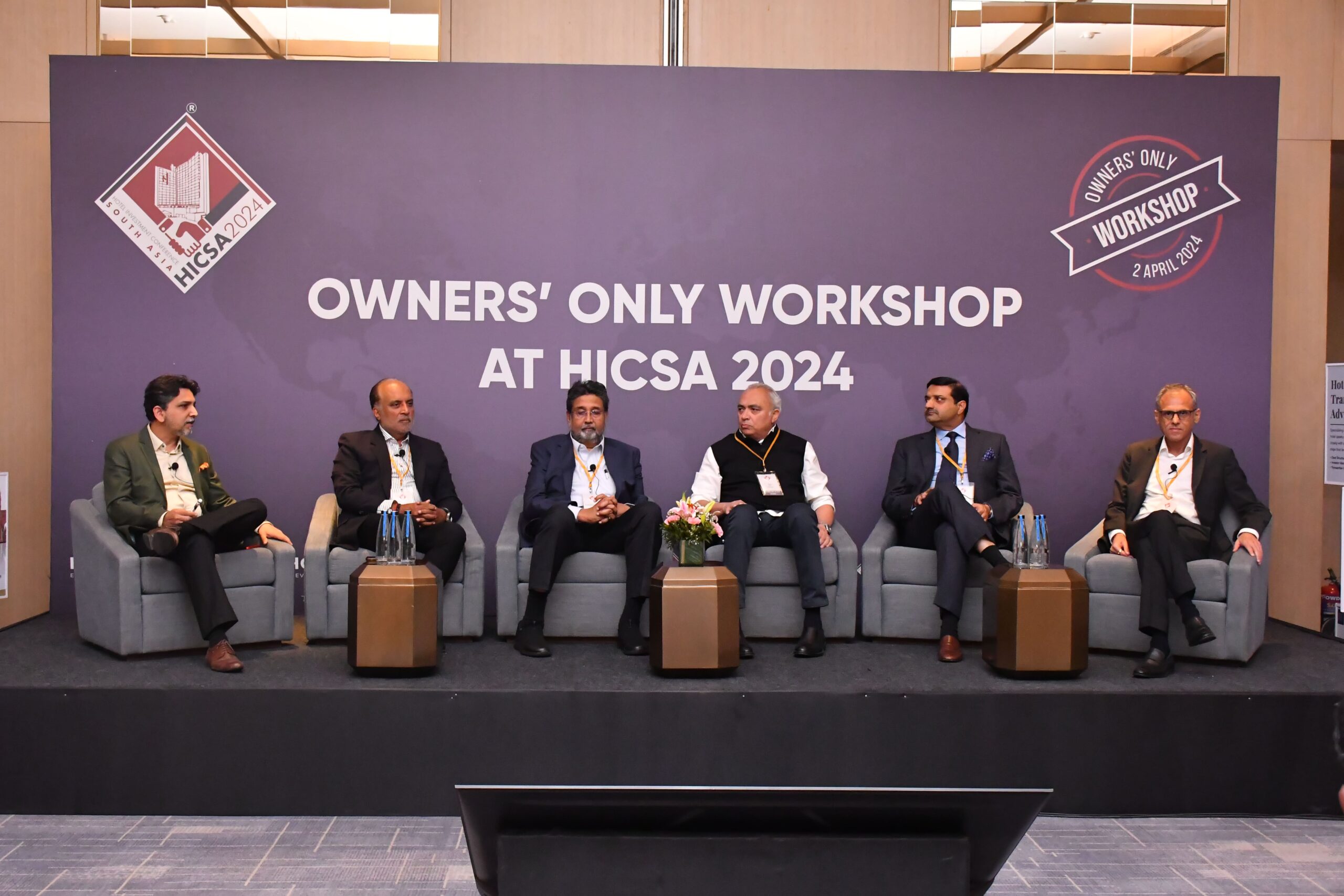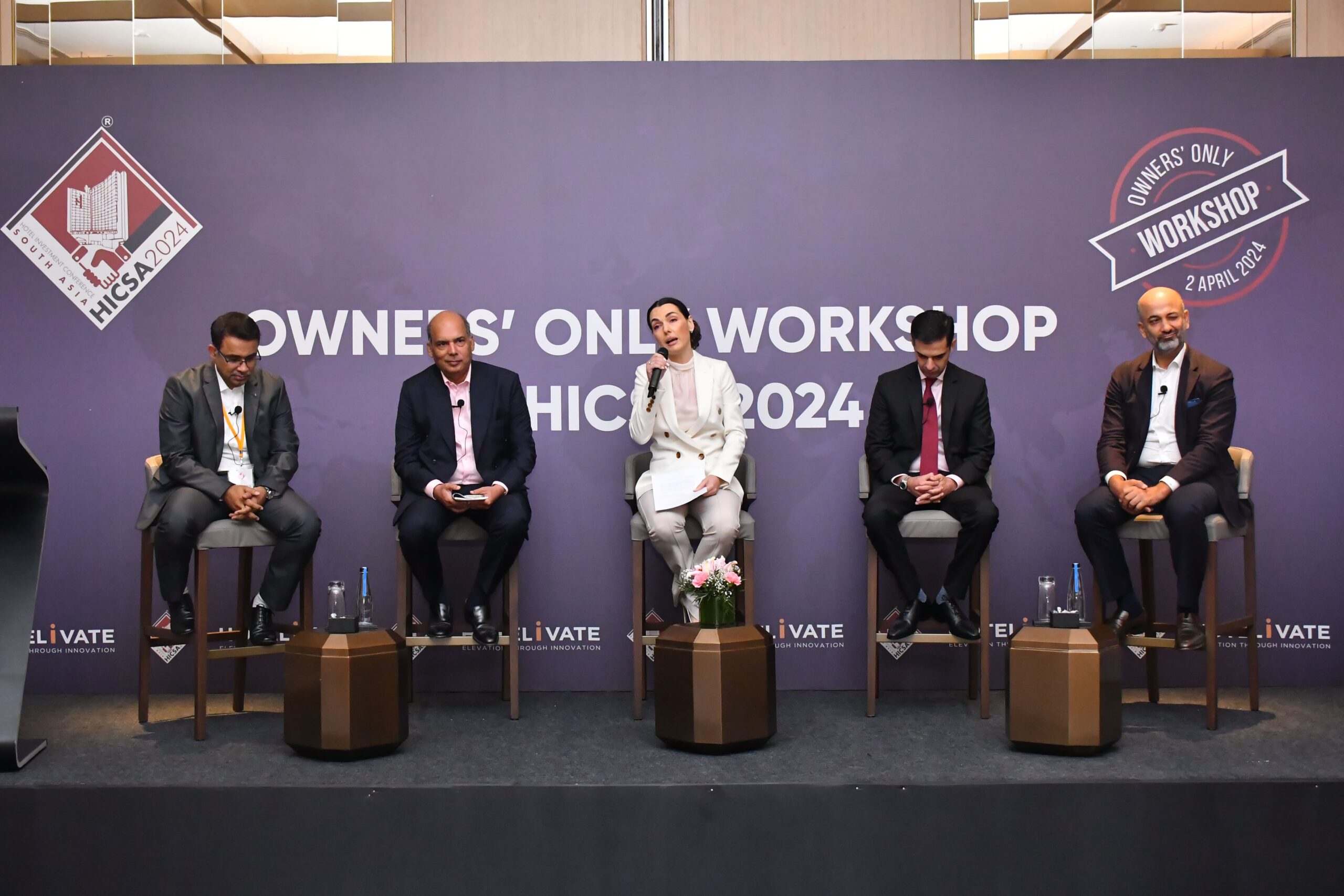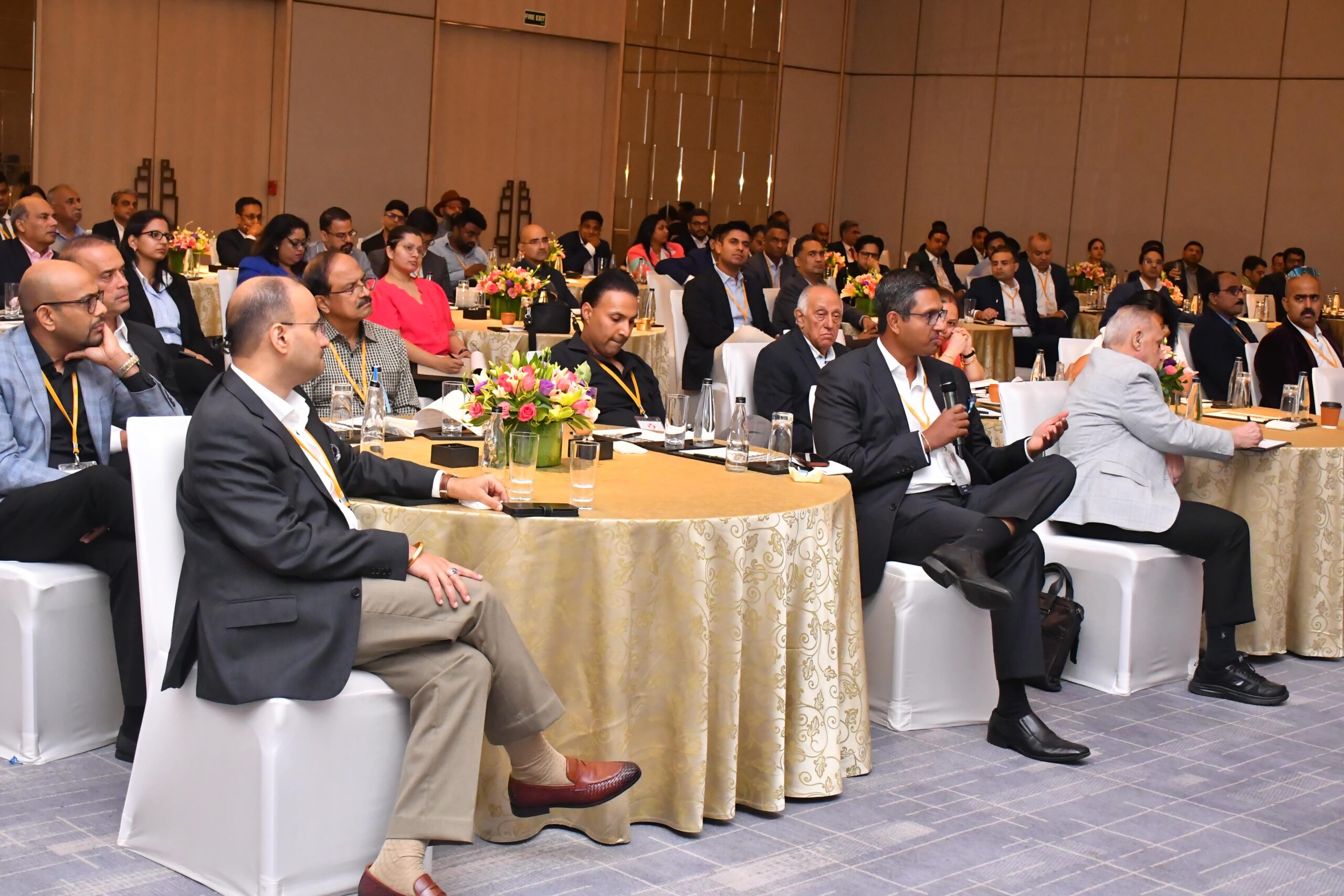Synopsis of Owners Meet at HICSA 2024
At the recently concluded HICSA 2024 in Bengaluru, the spotlight was on the owners. In an interactive session “Solving for Owner Challenges” a group of over 120 owners shared their insights on the present state of the hospitality industry in India and their desired areas of improvement.
Below are some of the key points overheard at the Owners Only Workshop and Hotelivate’s Take on each of the key points. The points below are random in order and should be read as such.
In an interactive session “Solving for Owner Challenges” a group of over 120 owners shared their insights on the present state of the hospitality industry in India and their desired areas of improvement including Brand Standards, F&B Profitability, Incentive Fees, Opacity in Operators’ Fees, Performance Tests, Brand Technical Services, Need for a Hotel Owners Association and the Talent Crunch.
Brand Standards
The Owners’ Opinion: Brand standards are a contentious issue between owners and operators, marked by a lack of flexibility. Owners find the rigidity troubling, considering the significant capital expenditure involved to meet the brand standards. Many international brand standards don’t align practically with the Indian market context, failing to reflect the local milieu. There’s a need for adaptability in brand standards to suit specific markets. On a contrasting note, despite this rigidity, brand standards are often conveniently bent or altered when it benefits the operator. This inconsistency highlights a misalignment of interests between the two parties. Practical discussions and greater adaptability in brand standards are necessary to resolve this issue.
Hotelivate’s Take: Most brands do need to give this critical issue a serious thought. Either brand standards are sacrosanct, or they are adaptable and flexible. The brands cannot have the best of both worlds, as and when it suits their interests. The present environment does leave a bad taste in the mouths of owners when they witness this opportunistic attitude of many-a-brand. In our opinion, the so-called PIP is badly handled, and some level of practicality needs to be brought in.
Over the past few years and going forward, there will be a lot of conversion opportunities and if brands need to grow, they will need to show greater flexibility. To give credit, IHCL as an Indian brand and Radisson as an international brand have shown this flexibility by creating newer sub-brands and have adopted this approach successfully to be able to convert hotels fast and give that benefit to the owner.
F&B Profitability
The Owners’ Opinion: There’s a noticeable lack of focus on the profitability of F&B operations within hotels. If F&B outlets were viewed as standalone profit centres, with a portion of overhead costs allocated accordingly, many existing outlets would fail to demonstrate profits. Despite brands advocating for multiple outlets within properties, there is limited attention given to ensuring their profitability and crafting unique dining experiences. Instead, these outlets often function as cost centres, diminishing the overall profitability of hotels.
Several solutions are available for brands to address this issue including:
- Implementing centralised kitchens or clustered operations for outlets within a property, or in some cases, outlets across properties in a region, thereby enhancing operational efficiency.
- Outsourcing remains an attractive option for hotels, promoting both unique dining experiences and reducing cost.
Additionally, it is imperative for restaurant managers and general managers to treat outlets independent P&Ls from the hotel itself. These outlets should be branded and marketed distinctly, with their own identities in the market, to drive profitability.
Hotelivate’s Take: The suggestions being proposed are not untested, as several successful markets across the globe already adopt these strategies. It is about time all of these strategies were deployed by owners, with the help of their brand partners. In fact, to solve the long-term problem of F&B in hotels, it is recommended that right at the inception stage when hotels are being designed by the architect and the technical services team of hotels, there needs to be careful thought given to see if multiple restaurants are even required. Right now, the base fee and incentive fee are being paid on total revenue and GOP of a hotel, respectively. So basically, the rooms revenues are subsidising the operating losses of these units, as many hotels F&B outlets are failing to drive profitability in these restaurants, Maybe the food for thought here is that should it be separated?

Snippets from HICSA 2024
Incentive Fees
The Owners’ Opinion: Incentive fees in India’s Hotel Management Agreements no longer align with their intended purpose. The fee structure’s low thresholds allow operators to earn fees even in cases of poor profitability. Consequently, in many instances, operator fees surpass the owner’s return, which is counterintuitive as the owner assumes most of the business risk and thus deserves a proportional return. To address this issue, a proposed solution involves calculating an acceptable minimum threshold as follows:
Owners’ IRR+ Cost of Debt = Minimum Threshold for Incentive Fee
Beyond this threshold, a cascading structure of incentive fees should be implemented, perhaps even allowing for large payouts in instances of high profitability. This ensures that owners receive a return sufficient to cover their needs and have a sufficient DSCR before operators receive any performance-based incentives, thereby also safeguarding owners’ interests.
Hotelivate’s Take: While the operators may argue that the owners’ costs below the GOP line are not their concern, it is important for them to realise that while they needn’t be accountable for such owner liabilities, however, they do need to pay heed to them. A win-win solution is a must for healthy owner-operator relationships. To that end, adopting the structure proposed above (or something similar) would be a prudent and progressive step forward. While this suggestion was brought forward by one of the participants in the audience, it did strongly resonate with the larger owner community. In recent time, Hotelivate has come across a few brands willing to drop incentive fees to zero or very close to zero below a certain GOP margin. So, in the above scenario if the potential IRR is 16% and the cost of debt is 10% — then the hotel owner should be looking at zero incentive fees being paid below 26% GOP. To be fair to brands, this should come into effect post assumed stabilisation.
Opacity in Operators’ Fees
The Owners’ Opinion: Brand fees for services like systems, IT, and photography encounter challenges of opacity. Owners are mandated to use operators’ recommended vendors for these services, often at exorbitant prices. Owners advocate for capping these fees at certain levels to safeguard their interests. To combat these challenges, these fees should offer transparency, and rely on clear calculations.
Hotelivate’s Take: One of the most frequently heard concerns is indeed the opacity of ‘central services fees’, ‘bundled charges’, ‘hidden costs’, etc. Almost no operator in India offers full clarity and comfort in this regard. Operators would be well advised to give this portion of fees and costs a serious relook, and our suggestion is not as much about reducing these expenses, as it is for providing transparent and upfront clarity on them to the owners.
Performance Test
The Owners’ Opinion: Internationally, the performance test serves as a tool for owners to set stringent benchmarks for operators to meet. However, in South Asia, the Middle East and most of Southeast Asia, there is an evident power imbalance in favour of the operators leading to the performance test metrics to be more lenient and leaving the owner with minimal input. There is a pressing need for a stronger performance test clause in Hotel Management Agreements. Moreover, globally, advanced performance test metrics are either rare or entirely absent in HMAs in these markets. Thus, incorporating metrics like a Co-Variance test alongside the conventional GOPPAR and RevPAR tests is essential for a comprehensive evaluation of the operator’s performance.
Hotelivate’s Take: We have long argued that the performance-test lacks teeth in the context of hotel management contracts across brands in the region. A fair, robust, and truly utilisable test is warranted. Moreover, operators who are willing to not just offer a quality performance test, but also show openness to concepts such as ‘right of termination upon sale’ or ‘right of termination at cost, at will’ are likely to win more contracts in the years to come. Such concepts are common in the western world and should find their way into contracts in developing markets as well.

Snippets from HICSA 2024
Brand Technical Services
The Owners’ Opinion: In theory, operators’ technical services are meant to assist owners in maintaining brand standards by providing expert supervision. However, in practice, these services are often limited to a cursory review during the construction and pre-opening phases. There’s a need to overhaul technical services to encourage greater collaboration between operators and owners. This would involve experts from the operator’s side working closely with the hotel owner’s team. Operators possess valuable knowledge and experience gained from working across various hotels, which is especially beneficial for first-time owners.
Hotelivate’s Take: Technical services are certainly in need of a relook. Their contribution to the owner’s construction process does remain rather limited, especially given the large amount of fees that the brands seek for this service. There exists a view that the technical services fees are being used to pay the cost of the development teams as opposed to necessarily provide the right guidance. Perhaps the need of the hour is to give the tech services offering a detailed overhaul. Proving guidance to the architect, interior design consultant, all the other technical consultants, etc. should be an active part of deliverables. Moreover, the tech services team should be helping the hotel developer with a granular assessment of project cost rather than having them rely on their PMC or Architect. A proactive, more involved and hands-on approach is needed.
Hotel Owners Association
The Owners’ Opinion: The consistency in clauses across operator contracts is striking, with various operators making unreasonable demands of owners. This leaves owners with little choice but to accept these terms, as alternatives are scarce. It highlights the necessity for greater collaboration among owners to align their interests and demands when dealing with operators.
Establishing a hotel owners association would enable owners to present a unified front against unreasonable demands from operators. Moreover, it would foster innovation and provide solutions to common challenges faced by owners. Such collaboration would empower first-time and non-institutional owners, enhancing their leverage in negotiations with operators and promoting a more equal balance of power.
Hotelivate’s Take: While the idea of creating an owner’s association is interesting and the thought behind it is fair, Hotelivate believes that creating such a body may not be entirely practical. For instance, how do organisations such as IHCL, EIH, Leela Hotels (owned by Brookfield), etc get addressed? They are both, owners and operators of brands. Excluding them from this association may not be fair and including them in it may dilute some of the intended purposes of the body. Overall, while there is merit to creating a body that voices the opinion of hotel owners, a formal association that exerts influence may be a far reach.
Globally this situation is not a big issue as hotel brands typically do not own hotel assets. Back in the day, Marriott and Marriott Host split up. While it was not because of similar issues, it did provide for two separate companies looking after their own interests. In Hotelivate’s opinion, in the long run there will be conflicts between owned assets by brands and the hotels they manage. There will need to be greater transparency on how issues are handled. Perhaps a system of strong independent asset managers who do not report to COOs as that itself is a conflict. We, however, do not agree necessarily that a formal owners association needs to be formed or if it would resolve anything.
The Talent Crunch
The Owners’ Opinion: The hospitality industry grapples with a well-known talent shortage, with hiring and retention posing significant hurdles. Despite this, a substantial portion of expenditure continues to be allocated to operator fees across different areas. Owners believe that addressing this talent crunch and positioning themselves for growth requires a strategic shift. They propose reallocating investments from operator fees towards efforts aimed at finding and retaining the right talent, thus effectively solving this challenge.
Hotelivate’s Take: While the owners have posed an interesting suggestion, we are of the view that ‘borrowing from Peter to pay Paul’ may not be the path forward. A concerted and serious effort needs to be made to enable fair and equitable compensation for the employees of our industry. However, we do not feel that asking the operators to take lower fees and transposing those savings to employee salaries may be the solution for this. The fact is that we are simply not paying enough at starting salary levels and treat youngsters coming out hotel schools as cheap labour as opposed to opportunities to train them. We particularly feel that international brands are more at fault in this area. For them, training is often happening through videos and other tech devices whereby we live in a service world that requires a lot more in-person training.

Snippets from HICSA 2024
For more information, please email us on [email protected]

